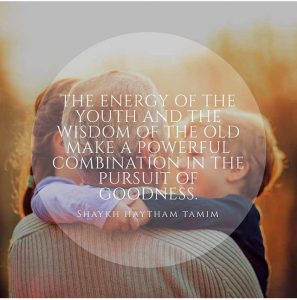Why doesn’t Happiness Last?

Why doesn’t Happiness Last?
Have you noticed that no feeling lasts. Our moods are fluctuating constantly and moments of happiness evaporate into thin air. Why is happiness so transient? And why does life often feel like a struggle?
And We certainly sent Musa with Our signs, [saying], ‘Bring out your people from darknesses into the light and remind them of the days of Allah.’ Indeed in that are signs for everyone patient and grateful. (14:5)
When Allah Almighty says in Surah Ibrahim ‘Remind them about the days of Allah Almighty’ what does He mean?
In the story of Musa (peace be on him), there is pendulum between days of ignorance and days of guidance, days of happiness and days of struggle and sadness.
Allah Almighty commanded Musa (peace be on him) and by extension, us, to remember these days when He granted Bani Israel favours. Not to forget.
In another ayah Allah Almighty says,
‘As such you’ve been before, [i.e like the disbelievers] so he bestowed his favours upon you, so you became believers after that’ (4:94)
We are only believers through Allah Almighty’s guidance.
In other words, we must keep reminding ourselves about guidance and disbelief and not become complacent or smug by the fact we have guidance, as so often, we we look down at others assuming they are inferior- this is not the way the message was delivered.
Reminding ourselves about the days of Allah Almighty charges our batteries, and boosts imaan in our life. We should always be grateful for the favours of Allah Almighty and the greatest favour of course is imaan. So we thank Allah Almighty for this very favour, naimtaul imaan, and we ask him to keep us on the straight path always.
Constant Wavering of Imaan
We are not always in a stable state. We are in a constant state of flux. Like the alternation of the day and the night, and the ups and downs of the stock market, our imaan in particular is volatile.
This is why we ask Allah Almighty continuously to keep us on the Straight Path, ihdinasiratul mustaqeem:
Guide us to the straight path (1:6)
Good Days
Our guidance came to us through the Prophet (peace be upon him), and amongst the happy days which the ummah received is his birthday. So we should be reminding ourselves about ayam Allah, the days Allah Almighty given to our ummah, including days such as the Prophet’s (peace be on him) birthday, as opportunities to refresh our knowledge of his prophethood, and his message. And always remain grateful for these favours from Allah Almighty.
Bad Days
On the other hand we all have bad days. Days of sadness, and of struggle. Allah Almighty stated in Surah Balad,
Indeed We have created man in deep struggle. (90:4)
We have a continuous struggle against our own selves, against our nafs, against our whims and our desires, against the shaytan, against the dunya, but nevertheless this is what lends life its many flavours.
Imagine life with no struggle, it would be boring. Even though sometimes the struggle feels too much to bear, this is what makes us what we are.
When you rub a cloth you can feel its quality, or when you rub metals like gold and silver you can tell their quality. Similarly tests and struggles we face reveal the quality of our imaan. So we should expect ourselves these days of kabd of struggle.
Hasan al Basri[i] commented that this ayah is saying that man struggles to show his gratitude to Allah Almighty when he is in a state of happiness, and struggles to have patience when he is in a state of sadness. And this reflects the hadith of the Prophet (peace be upon him) who said,
How wonderful is the affair of the believer, for his affairs are all good, and this applies to no one but the believer. If something good happens to him, he is thankful for it and that is good for him. If something bad happens to him, he bears it with patience and that is good for him. (Muslim)[ii]
Regardless of belief, this is our situation as humans, at any one time, we are in one of two situations, either in the status of favours or in the status of hardship. There’s no status in between.
Either way, even if you can’t recognise it, you are in a continuous process of being tested. They may be small tests, big tests, out of the blue or lingering, as they come in all shapes and sizes. There’s no one-size-fit-all test as they are unique and bespoke. We are all tested according to our situation, according to our actions, according to our connection with Allah Almighty.
So when we read ‘indeed we have created man in deep struggle’, it reflects that we are always striving and struggling, and that every day we have some struggle, every day we have to strive towards improving ourselves – whether earning our halal rizq, how to deal with halal, how to seek the halal, how not to compromise our principles. It’s a struggle on a daily basis.
How to carry out our imaan without being shy about our identity as a Muslim, isn’t it a struggle? It is. Men and women on a daily basis are in a situation of struggle, in the same boat, we are struggling together.
Remembering to be Grateful in all States
And so we have to remind ourselves to be always grateful to Allah Almighty. Allah Almighty has said in the Qur’an,
If you are grateful, I will surely increase you [in favours] (14:7)
The favours of Allah Almighty are connected with gratefulness – if you want to keep your favours remain grateful for them. If you lose gratitude, then you lose the favour. As the greatest favour which we have received alhamdulillah is our imaan. We should teach our children to love the Prophet (peace be upon him), to follow his footsteps more, to cling to his sunnah more, not only in Rabi al-Awwal, (on his birthday) but throughout the year.
We need to learn more about the Prophet (peace be upon him) – his character, his conduct, his actions, his worship and teach our children instead of learning just about footballers and cricketers and this and that, (though I’m not against sport per se, even though I don’t understand cricket!), but nevertheless we should encourage our children to learn more about the Prophet (peace be upon him) with all these new apps and technologies, we can utilise them in goodness. There are plenty of ways we can engage, inspire and enable our children to love the sunnah.
Chasing the Elusive vs Facing the Reality
We should also teach our children that ups and downs are part of life, so that they are resilient and do not have unreasonable expectations that life will be a bed of roses. If we understand this concept ourselves, it means we stop asking ‘Why me?’ and instead think ‘What should my response to this be?’ and when we do that, we will be empowered to navigate the difficulties and challenges that come our way.
We ask Allah Almighty to make us all grateful for the favours that we have been given by Him. We ask Allah Almighty to enable us to follow in the footsteps of the Prophet (peace be upon him), and make him proud of us. Ameen
Khutbah delivered by Shaykh Haytham Tamim at the Muslim World League on 5th December 2017.
Transcribed by Sana Zuberi
For your weekly dose of wisdom, subscribe to the Living Qur’an. First Month Free.
The Khutbah Project
An initiative to involve our young volunteers in learning and spreading their deen through transcribing khutbahs.
If you would like to be involved, please contact: ayesha.khan@utrujj.org
[i] Hasan al Basri is not a companion of the Prophet (peace be on him) as ma ny people think. He was born in that 21st year of Hijri’, so he was born in the 21st year, (during the caliphate of Umar (may Allah be pleased with him) and passed away in 110 Hijri. He was brought up in the prophetic house and was the son in breastfeeding of Umm Salamah, so he received a lot of knowledge, and lot of care. He moved to Basri, Iraq when he was 15. His piety and scholarship were remarkable.
ny people think. He was born in that 21st year of Hijri’, so he was born in the 21st year, (during the caliphate of Umar (may Allah be pleased with him) and passed away in 110 Hijri. He was brought up in the prophetic house and was the son in breastfeeding of Umm Salamah, so he received a lot of knowledge, and lot of care. He moved to Basri, Iraq when he was 15. His piety and scholarship were remarkable.
[ii] which has been narrated in Sahih Muslim, on the authority of Suhayb ar Rumi,
Recommended Posts

Don’t be a Ramadani person – Be a Rabbani person.
April 10, 2024


